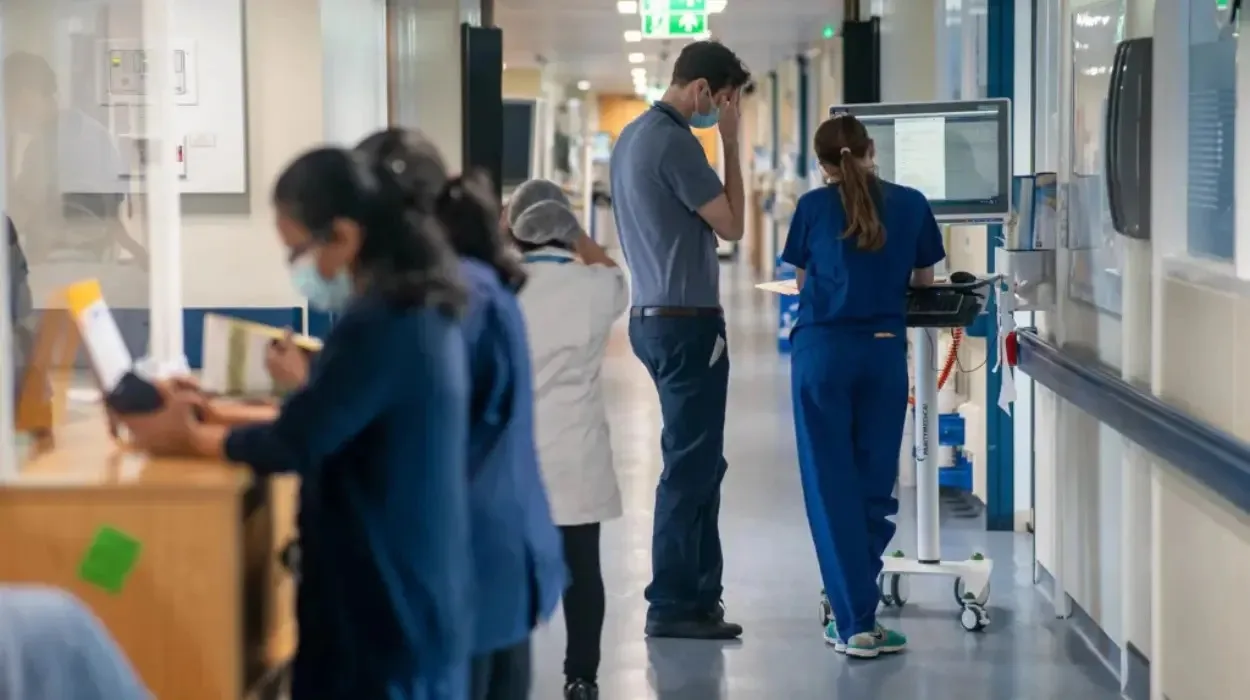London (Parliament Politics Magazine) – London hospitals have written off £112m in unpaid treatment bills from patients abroad over five years, as NHS regulations require charges for non-urgent treatment.
According to NHS rules, hospital trusts in England must charge foreign patients for scheduled treatment.
Critics claim the existing system for recovering these costs needs to be revised.
As reported by BBC, the Department of Health and Social Care (DHSC) stated that it expects NHS trusts to collect any outstanding charges not paid upfront whenever feasible.
The BBC surveyed all 32 of London’s acute hospital trusts to collect information on their billing practices for foreign patients.
Over five years, the responding NHS trusts billed £223m for overseas patient treatments, but £112m was later written off as irrecoverable debt.
While emergency and GP services are free for all, NHS trusts must charge overseas patients 150% of NHS rates for routine care.
This charging policy is proposed to offset the administrative expenses associated with identifying patients and seeking payment.
The premium system, designed to tackle “health tourism,” includes exclusion for weak groups like asylum seekers and victims of trafficking.
Recovering costs is seen as a challenge for hospitals, especially when patients leave the country.
Hospital trusts must balance their legal responsibility to recover costs with the practicalities of providing treatment to patients, many of whom struggle financially or encounter difficulties in making payments.
Barts Health, which serves a significant population in East London, had the highest waiver of £35m in unpaid bills over the five years.
A spokesperson from Barts Health stated, “Where appropriate, we make every effort to recover payment from patients who are liable for the cost of their treatment.”
King’s College Hospital wrote off £17m, and 10 other trusts wrote off over £1m in unpaid bills.
A spokesperson from King’s College Hospital insisted on the significance of fulfilling the legal duty to identify patients who do not qualify for free NHS care.
He added the trust works “to ensure we embed fairness and proportionality principles into our income recovery processes.”
Lewisham and Greenwich Trust forgave £11m in unpaid bills and affirmed that it would never prevent anyone from seeking care, particularly those using its maternity services.
The British Medical Association (BMA) has repeatedly opposed the charging policy, asserting that it prevents vulnerable groups from seeking necessary healthcare and wastes NHS staff from their administrative tasks.
A disabled man seeking UK residency, who wished to be anonymous, told the media he was charged £495 from a London hospital trust after two appointments for a prosthetic leg fitting.
He described the experience as traumatic and said,
“I felt like I’m a negative person here, because I cannot do anything. Cannot work, I cannot do nothing.”
The BMA also insists that doctors should not be tasked with determining whether patients qualify for free NHS treatment.
A critic of NHS charges for foreign patients, Dr. Omar Forge Risk, argued that the charging system affects public wellness.
Doctors also shared their experiences with the press regarding the charging system.
A former medicine practitioner in London said they had treated “multiple patients” who arrived in Britain with kidney dysfunction from various nations due to the inability to afford dialysis or limited access to care in their native countries.
According to government projections from 2023 by Health Secretary Jeremy Hunt, a more consistent approach to charging overseas patients could generate £500m more per year for the NHS.
The spokesperson from the Department of Health and Social Care stated,
“Overseas visitors – and those who are not lawfully settled here – should contribute towards their treatment in recognition of the additional cost to the NHS.”


